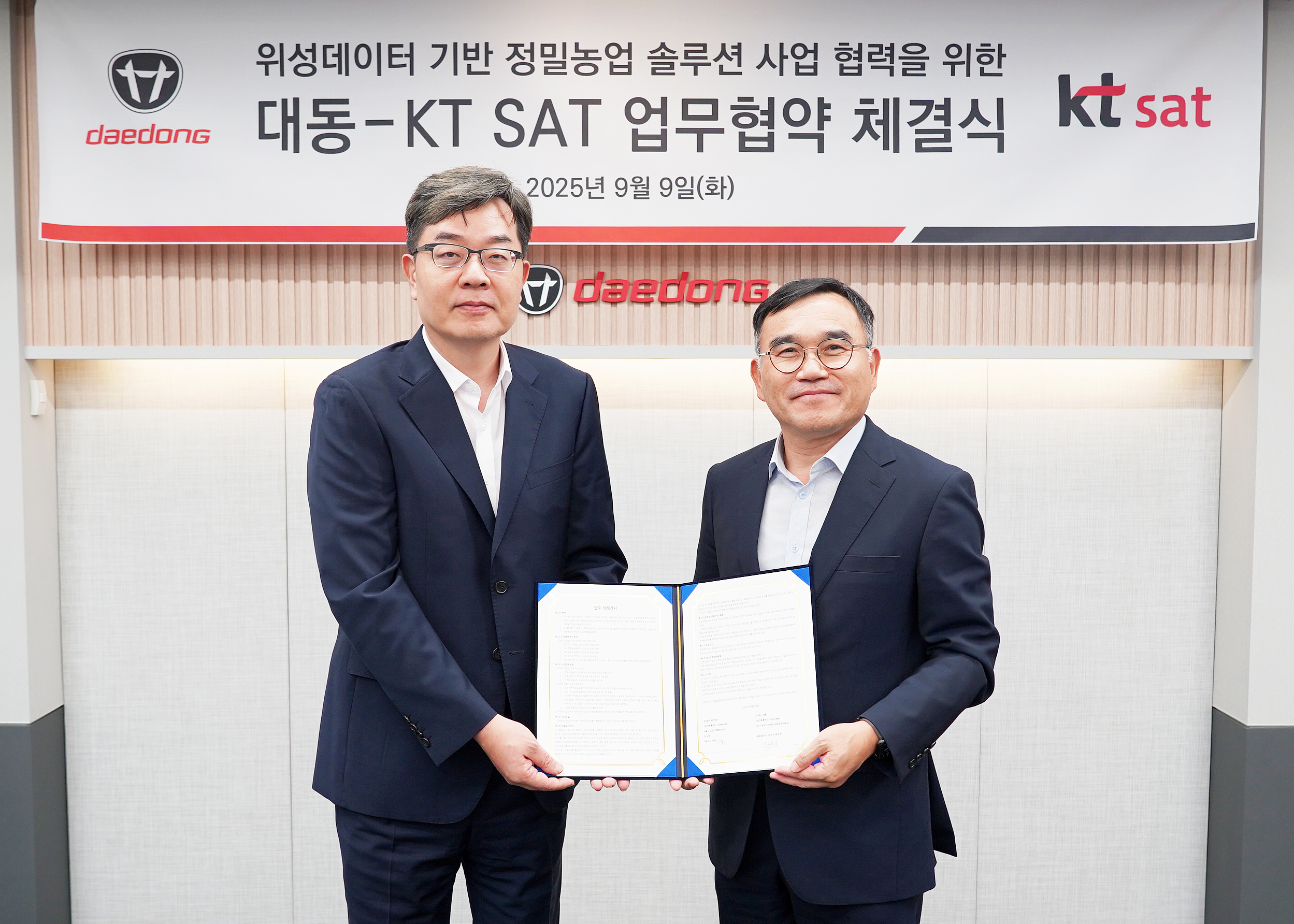Daedong and KT SAT “Team Up” to Develop Satellite-Based Precision Agriculture Solution
Daedong and KT SAT “Team Up” to Develop Satellite-Based Precision Agriculture Solution
-. Daedong’s precision agriculture technologies combine with KT SAT’s satellite expertise to build a large-scale agricultural monitoring system
-. Satellite imagery enhances the competitiveness of precision agriculture services and supports expansion into domestic and global markets.
-. Daedong accelerates precision agriculture innovation by integrating advanced technologies such as AI robotics, aiming to boost productivity and efficiency.
Daedong (Co-CEOs Kim Jun-sik and Won Yu-hyun), a leader in future agriculture, announced on September 10, 2025, that it has signed a strategic memorandum of understanding (MOU) with KT’s satellite communications subsidiary KT SAT (CEO Seo Young-soo) to jointly develop a satellite-based precision agriculture solution and promote its commercialization both in Korea and overseas.

Under the agreement, the two companies will collaborate across multiple areas, including the joint development and demonstration of satellite-based precision agriculture solutions, business development and marketing for domestic and international markets, and exploration of new business opportunities. Daedong will oversee solution development in areas such as soil and crop growth analysis, fertilizer prescription map generation, and control platform operation, as well as on-site application and testing. KT SAT will provide satellite imagery essential for precision agriculture and offer image processing and data analysis support to ensure stable and reliable information delivery.
This collaboration aims to establish a large-scale agricultural monitoring system optimized for vast farmland by leveraging the broad observational reach of satellites. It will enable continuous observation of crop growth conditions and climate change over time while ensuring stable data collection that is less affected by external factors such as terrain.
With this agreement, Daedong is expected to further strengthen the competitiveness of its precision agriculture services. Satellite imagery allows efficient data collection even in expansive or rugged farmland where drone operation may be difficult. Regular satellite monitoring also makes it possible to track seasonal and crop changes over the long term, improving the accuracy of decision-making in areas such as pest prediction and fertilizer timing. Moreover, in precision agriculture, which requires repeated observation, this approach offers significant potential for long-term cost reduction.
By combining high-resolution drone data with broad satellite data, Daedong plans to deliver more precise crop growth, yield prediction, and anomaly detection services. The company also intends to expand its domestic market with a diverse lineup of drone-and-satellite solutions tailored to customer needs. In the medium to long term, Daedong plans to advance its global precision agriculture business by integrating cutting-edge technologies such as autonomous agricultural machinery, AI robotics, and data centers.
